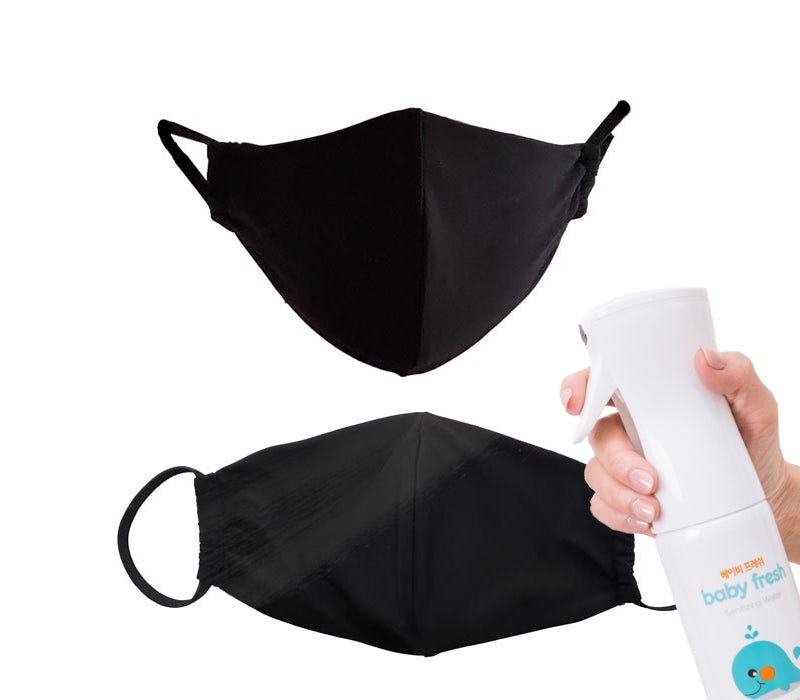
Why should we disinfect masks to protect skin?
While your face mask might be effective at protecting you and others from contracting the coronavirus, the truth is that the warm, moist environment, which occurs when you breathe under the mask, can also allow bacteria to thrive and colonise the skin.
“Face masks can trap oil, dirt and sweat close to the skin,” explains Pretoria-based dermatologist, Dr Tarryn Jacobs. This can lead to redness, irritation and skin breakouts also called “maskne” or mask acne, a condition where acne can worsen and spread, particularly around the mouth, cheeks, chin and jawline.
How bacteria spreads under a face mask
Dr Jacobs says that wearing a mask can cause pores (comprised of a hair follicle and its oil gland) to become blocked. This may result in a build-up of sebum and a special type of acne called acne mechanica, which she often sees in athletes who wear helmets, chin straps or other bulky, protective gear too.
“We know that bacteria multiply exponentially in warm, moist environments – and in this case, they’re called pathogenic because they can cause disease, or acne” adds Stuart Russel, co-founder of Biotechnology Company, Thoclor Labs. Therefore, partially or blocked oil glands that may be present in the skin, now stand a far greater chance of becoming infected.
Tips to stop the spread of bacteria
Clean your skin regularly
"The most important thing you can do to prevent acne from wearing a mask is to keep it clean", says Dr Jacobs. Cleansing the skin twice a day will effectively remove oil, dirt and bacteria before you have to wear your face mask again the following day.
Choose a gentle foam cleanser with salicylic acid, which penetrates pores and dissolves oil and dead skin cells responsible for acne.
TOP TIP: Avoid over-cleansing, as this can strip the skin of its natural oils which can cause dryness and irritation.
Hydrate your skin adequately
"Keeping your skin well moisturised with a lightweight lotion or cream is important for skin health as it supports its ability to function as a barrier", says Dr Jacobs.
Go easy on the makeup
Go for non-comedogenic makeup formulas that won’t block your pores. Rather than applying a heavy foundation and/or powder, for instance, a good compromise is to wear a tinted sunscreen or a lighter BB cream under your face mask.
Consider the type of face mask you wear
If you prefer fabric masks over disposable versions, Dr Jacobs recommends using 100% cotton as it’s a soft, natural fabric which is less irritating for the skin. Cotton is also a breathable fabric which will allow air to circulate easier in your mask and help reduce sweat production.
“You want a mask that offers a secure, snug but comfortable fit. This will help protect you and others from the coronavirus but will also reduce skin problems. A poorly fitting mask means you’re more likely to be adjusting it, which can transfer germs and bacteria to your face, as well as cause friction which may lead to chafing and more irritation,” says Dr Jacobs.

